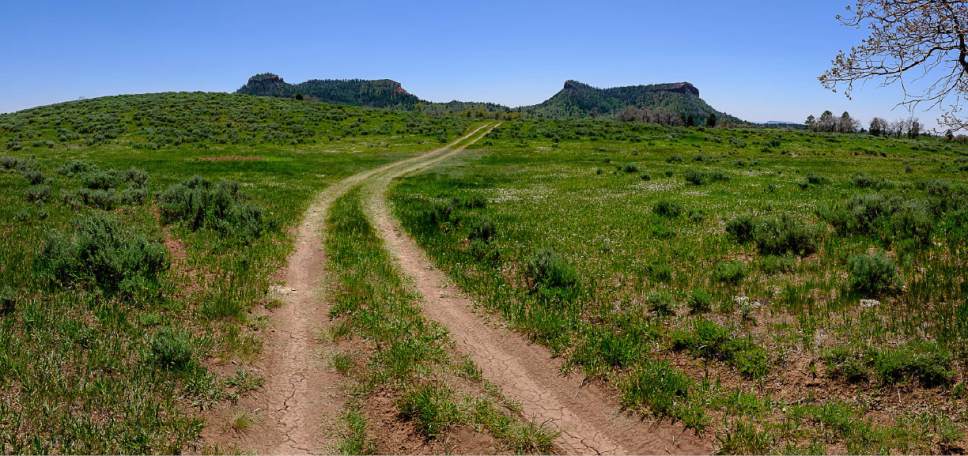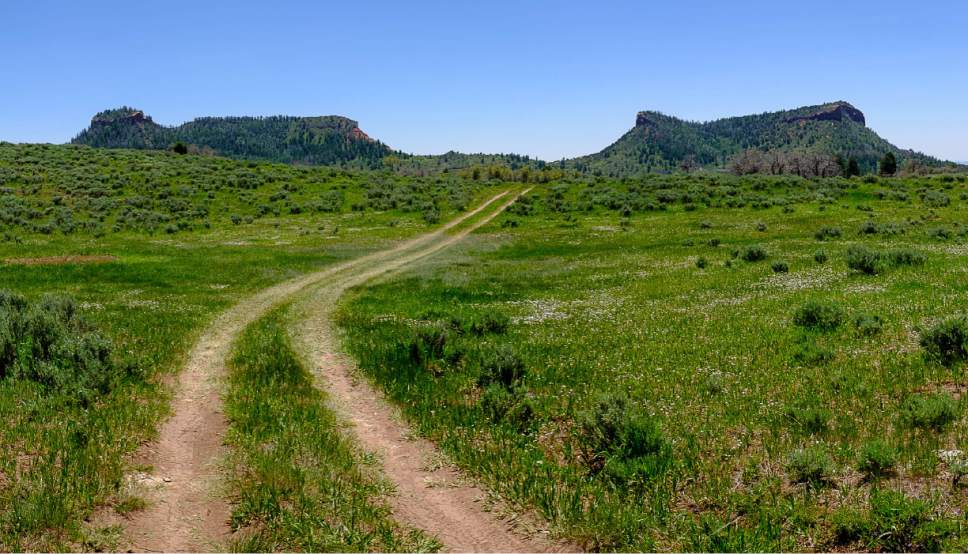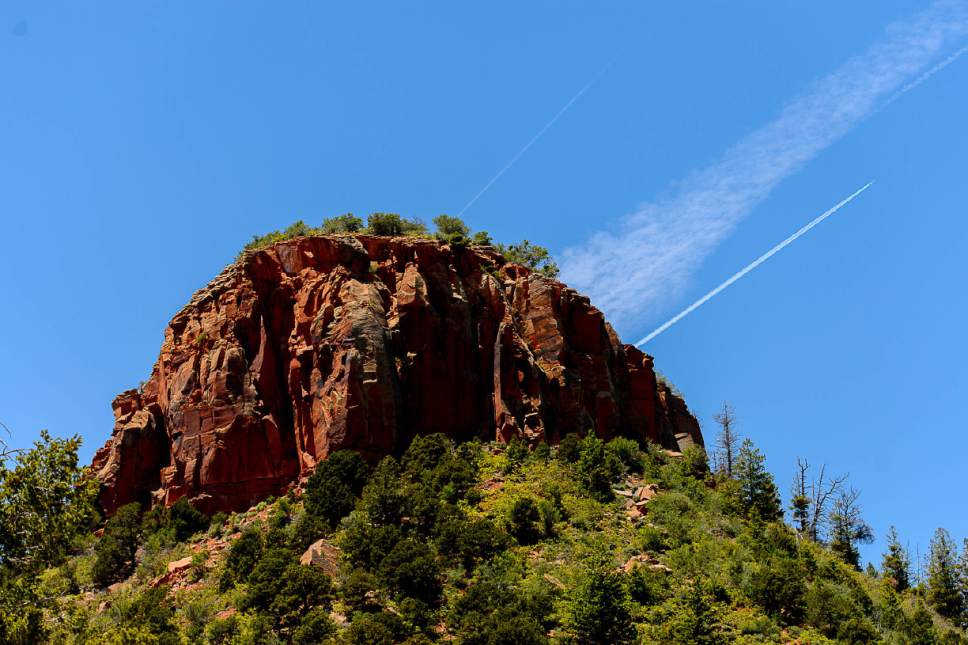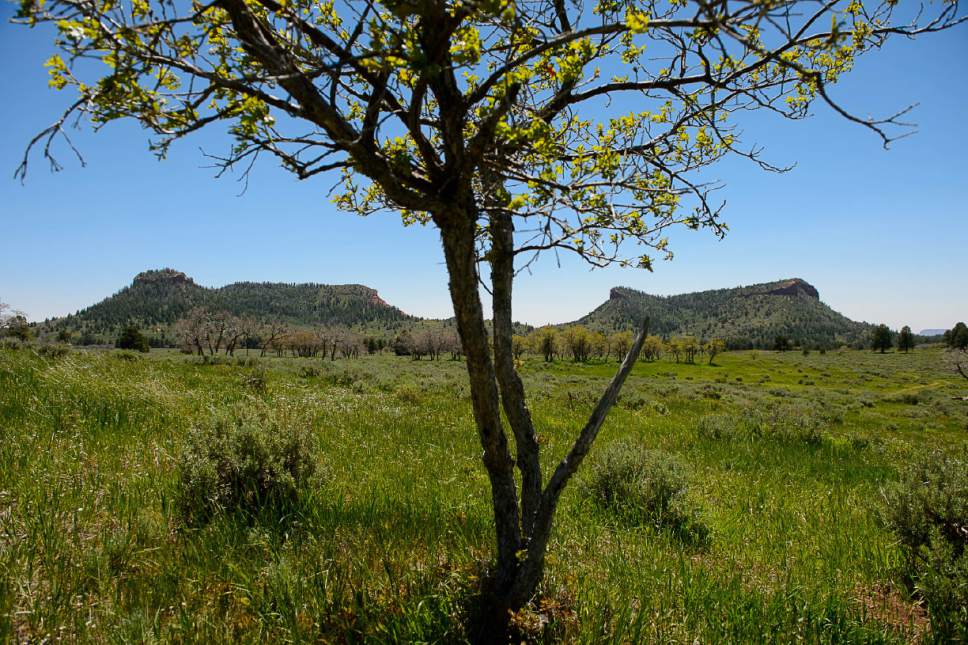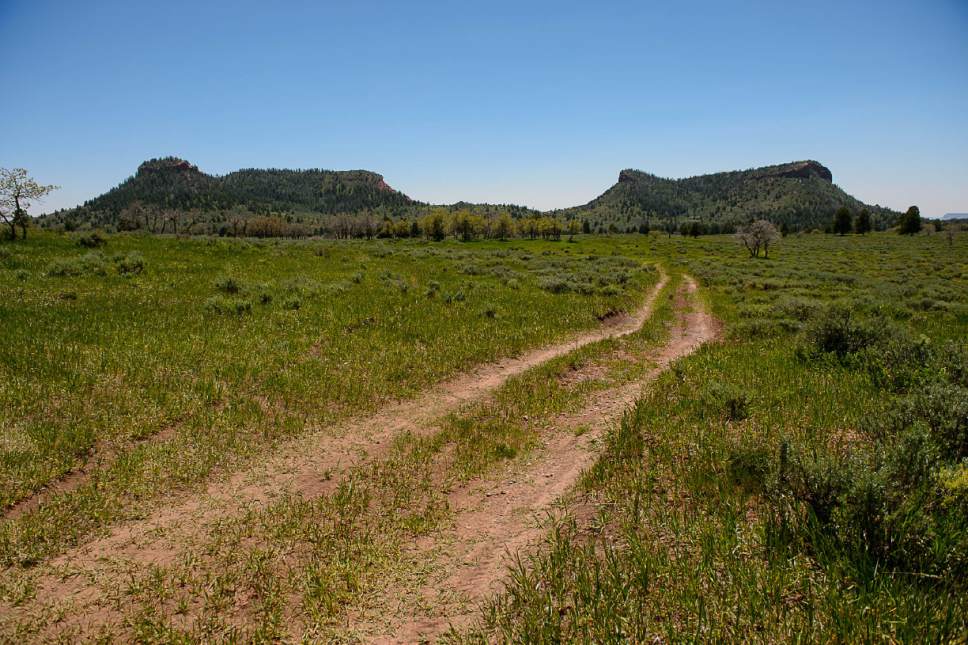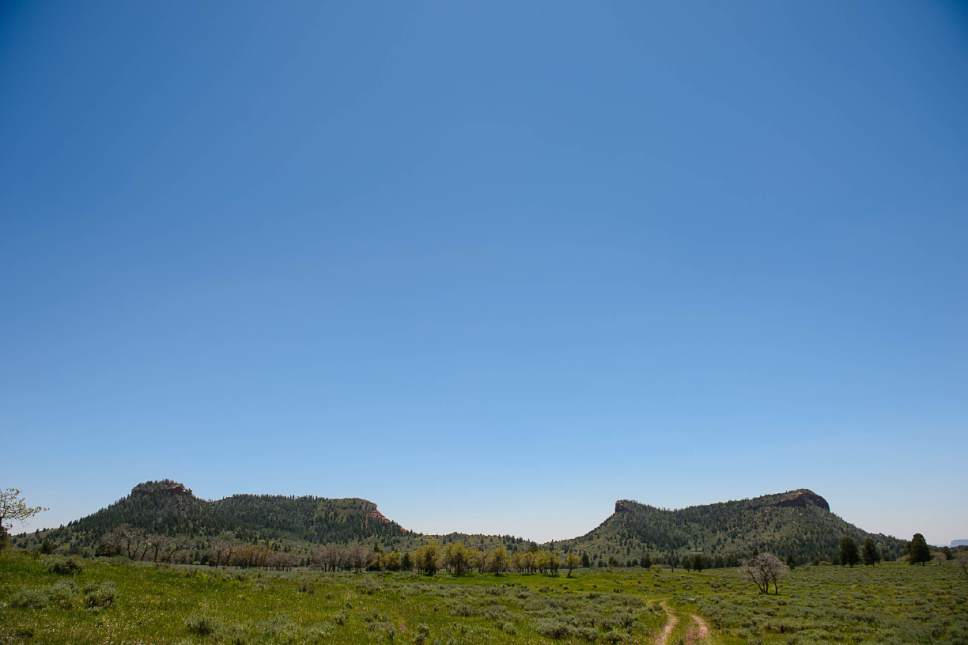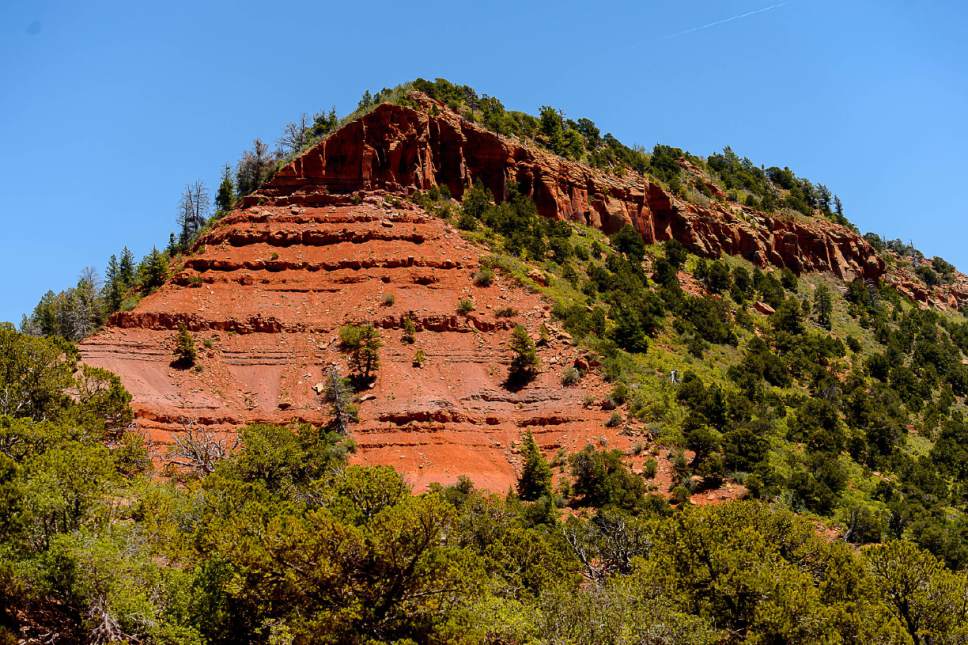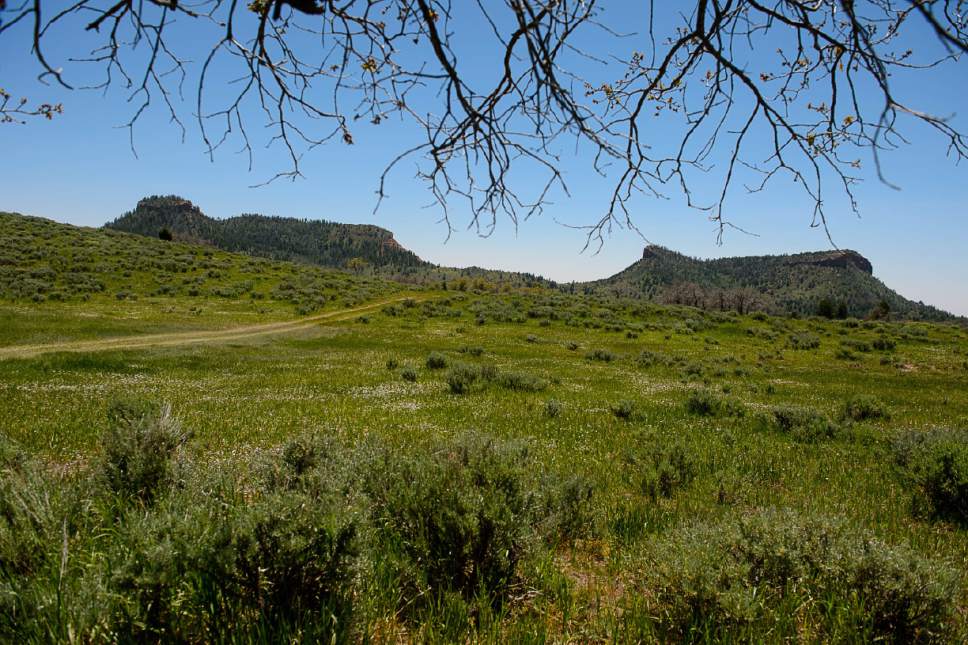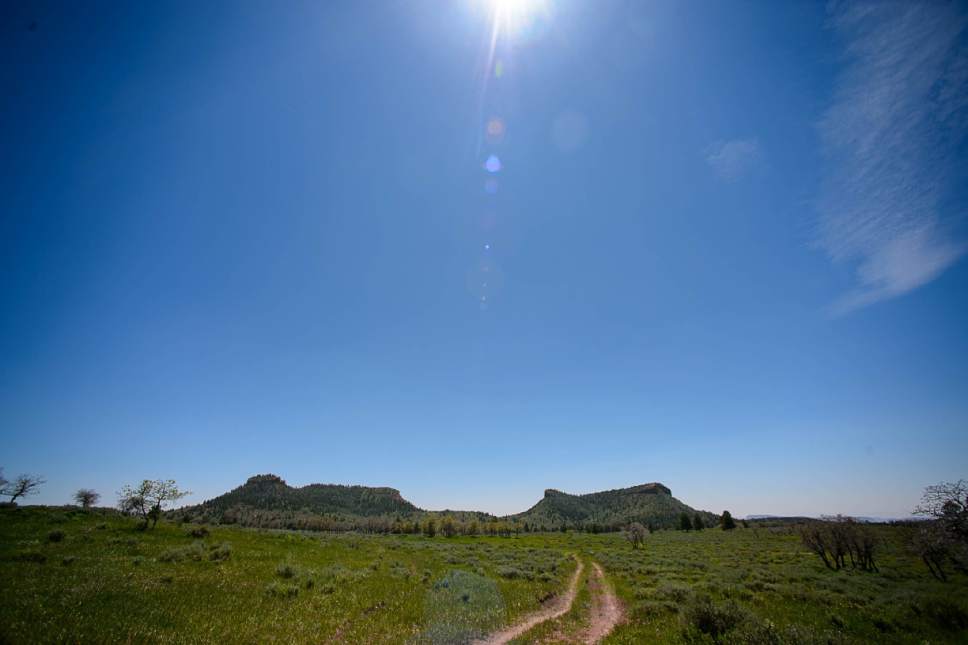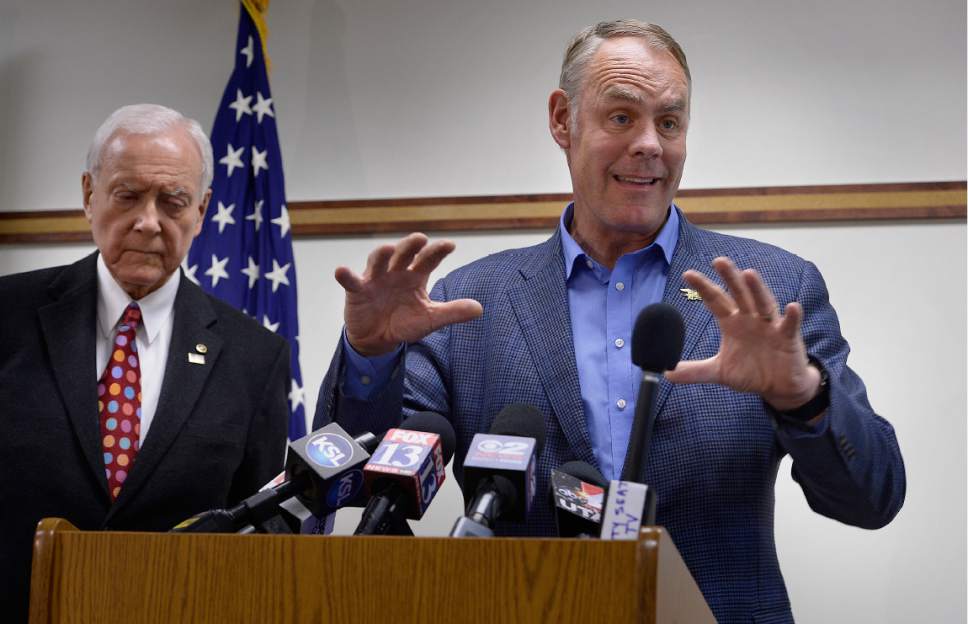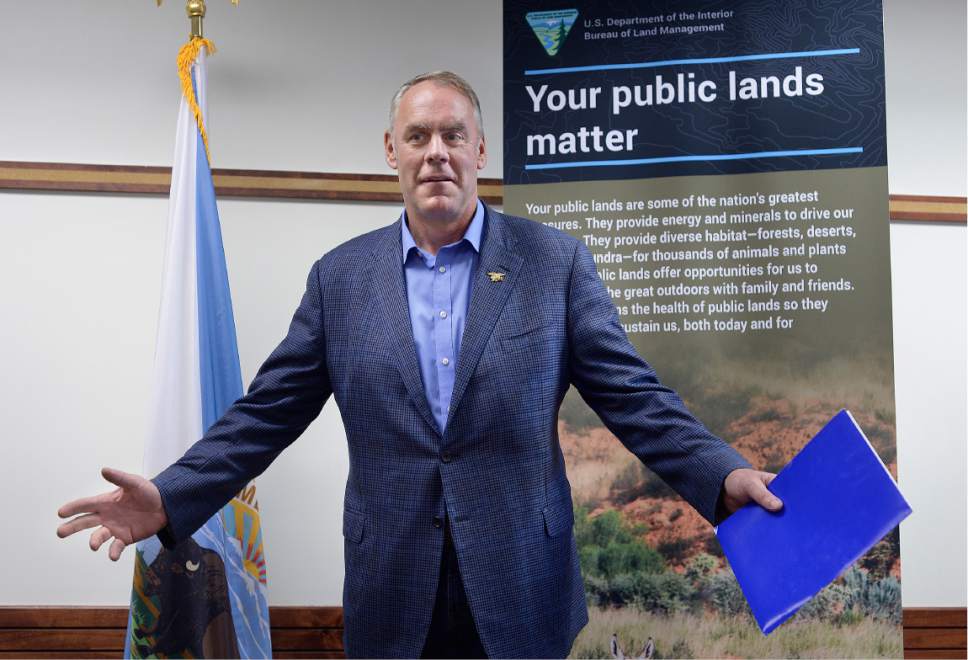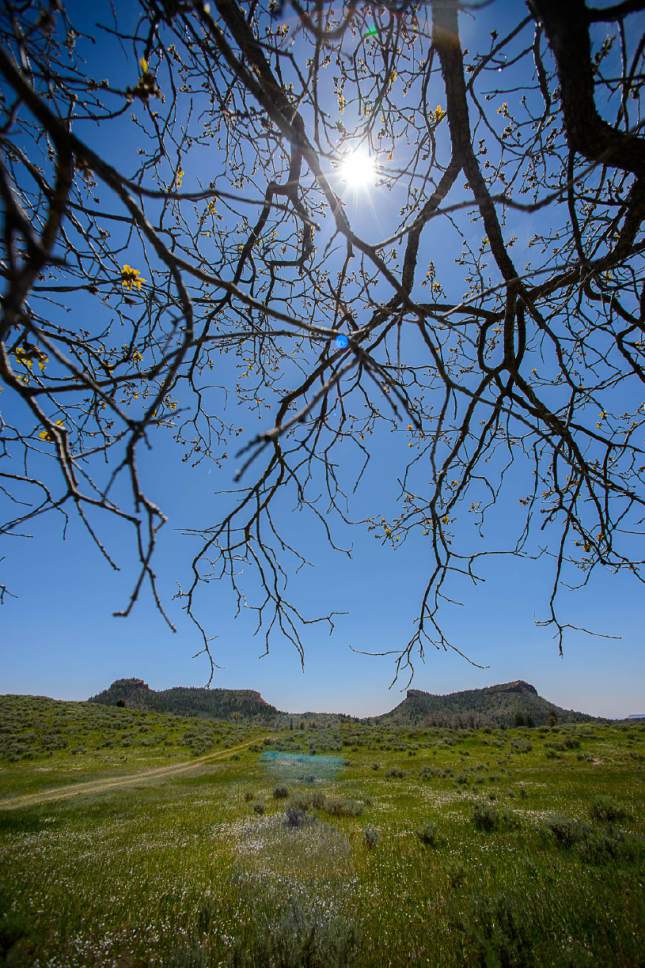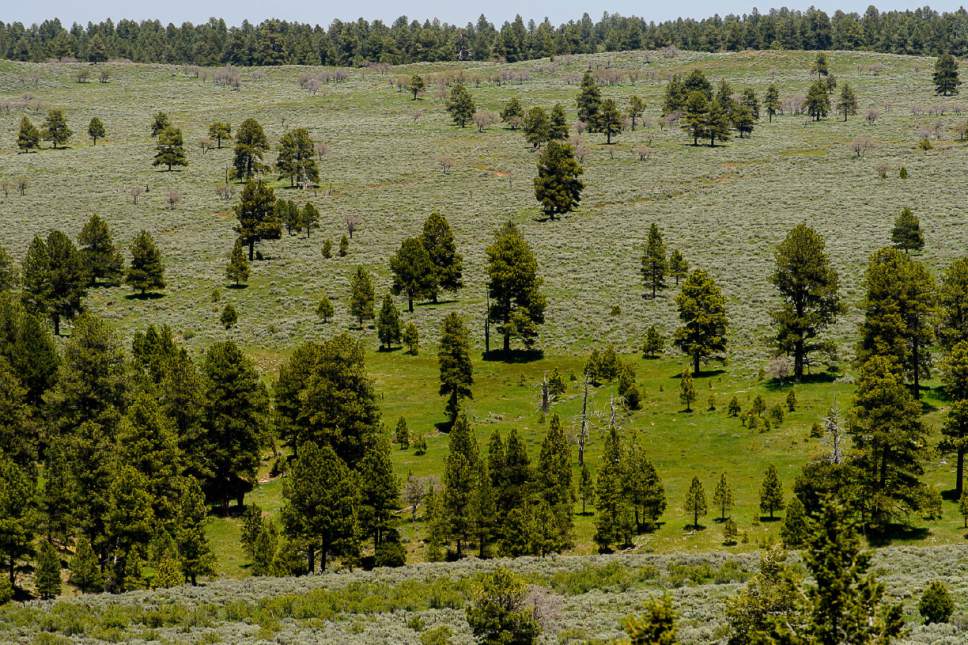This is an archived article that was published on sltrib.com in 2017, and information in the article may be outdated. It is provided only for personal research purposes and may not be reprinted.
Washington • In his initial report on Bears Ears National Monument, Interior Secretary Ryan Zinke is urging the White House to reduce its size to focus on discreet "objects of historic interest," while asking Congress to take further action on tribal co-management and special designations for lands that would be ultimately removed from the monument.
Zinke said Monday several places warrant monument status, so he opposes rescinding the monument as Utah's political leaders have sought.
"These recommendations were made after an extensive, exhaustive on-the-ground listening and learning session," Zinke said in a call with reporters Monday in Washington, D.C. "Almost all the people I talked to had similar interests. They were maintaining public access, traditional use, a love of the land, preserving the antiquities, and preserving the cultural traditions."
But, according to Zinke's report, President Barack Obama's expansive 1.3-million-acre designation hinders multiple uses of lands in San Juan County and does not accord with the intent of the Antiquities Act, which requires designations be confined to the smallest area possible for proper management of objects to be preserved.
"No doubt there are historic and prehistoric structures or objects of scientific interest within the Bears Ears monument," Zinke said. "These items and objects can be identified, segregated and reasonably separated. Objects of interest include dwellings, archaeology sites and drawings and areas that have a strong cultural ritual background."
While winning kudos from Utah's congressional delegation and local officials, Zinke's announcement drew a stiff rebuke from conservation groups and the five tribes that proposed the monument, which holds countless geological wonders and a rich archaeological record left by ancient American Indians.
During a news call Monday denouncing Zinke's report, lawyers for the Navajo, Ute, Ute Mountain, Hopi and Zuni nations said Utah leaders shunned a six-year efforts by grassroots American Indians to preserve the lands around Cedar Mesa, so the tribes petitioned Obama, who acted after an open and lengthy fact-finding process.
"These lands, the full landscape of the Bears Ears National Monument as designated by President Obama, are essentially holy lands to us and the other tribes that have joined the coalition," said Ethel Branch, the tribe's attorney general. "These lands hold plants, minerals and powers that are critical to our ceremonies. We rely on these lands to heal and strengthen our people and pass on our beliefs and cultural practices to our next generations, in other words, to continue on as Navajo people."
Some groups, including outdoor-gear maker Patagonia, have vowed to take the matter to court if the president shrinks the monument.
"This is an undeniable attack on our national monuments and America's public lands," said Jennifer Rokala of the Center for Western Priorities. "The decision should be an easy one — more than 1 million Americans, including Utahns by a 9 to 1 margin, have asked President Trump to leave Bears Ears National Monument alone."
Rokala said Zinke is recommending President Trump take actions "that are both unprecedented and illegal."
The interim plan Zinke released Monday did not give acreages or delineate exact areas for a "right-sized" monument. But the secretary highlighted the monument's namesake twin buttes, nearby areas on Cedar Mesa dense with archaeological sites, which presumably include House on Fire and Moon House ruins, and an area north of Newspaper Rock.
Likely to be excluded would be Mancos Mesa, Valley of the Gods, much of Elk and Comb ridges and Arch Canyon.
The San Juan Commission and the group Stewards of San Juan thanked Zinke Monday for listening "to all sides and work[ing] to make a decision based on facts." The commission has long alleged that the monument campaign was orchestrated by deep-pocketed environmental groups in an effort to lock up the land for elite outdoor recreation at the expense of grazing, logging, minerals and other traditional land uses.
"In San Juan County, we are fighting for our future," the commission said in a statement. "This monument designation was not about protection and preservation, the people of San Juan County have done that as stewards of the land. This monument designation was about control."
By shrinking the monument, the commission said, Trump and Zinke would be "empowering the local people with the ability to build a diverse economy and support their families."
Utah Gov. Gary Herbert called Monday's report "an important first step toward re-establishing sound land management practices" for this region.
"Throughout this process Secretary Zinke has demonstrated the utmost respect for local and tribal input," the Utah governor said. "I encourage the president to take this recommendation seriously, and I applaud the secretary for his balanced and responsible proposal."
In a joint statement, Utah House Speaker Greg Hughes and Senate President Wayne Niederhauser called Monday's announcement "a movement in the right direction" and commended Zinke's "recognition of the limits of executive power."
Outgoing Rep. Jason Chaffetz, whose district includes the monument, praised Zinke for engaging with local Utahns, although Zinke's predecessor Sally Jewell spent more time on the ground in San Juan County fielding public sentiment in numerous open and face-to-face meetings.
"A locally-driven, legislative approach is the best way to strike a balance among the people who love and use the vast acreage surrounding the Bears Ears," Chaffetz said. "Now it is up to Congress to find a win-win solution that will create a balance between conservation and use."
While Utah leaders have argued the 1906 Antiquities Act has been abused by presidents wielding it for political gain, Zinke said the landmark conservation law is "nothing short of an American success."
"Over the course of time the Antiquities Act has done some great things for this country. It has preserved some of our finest treasures," Zinke said. But he made clear he believes designations should be done in coordination with Congress and local residents, while sticking to specific "objects of historic or scientific interest" such as structures and geological formations.
That view doesn't square with how presidents have used the law dating back to 1908, when Theodore Roosevelt set aside Grand Canyon against the wishes of Arizona leaders, according to University of Colorado law professor Mark Squillace.
Zinke's report suggests "somehow you can simply protect a few postage-stamp-size areas around particular types of objects as if you could separate those objects from the landscapes they inhabit," Squillance said Monday on a call with the tribes' lawyers.
But Bears Ears, he said, "is replete with important objects, but more importantly the landscape itself is what gives the feel for that area for cultural and spiritual concerns."
Meanwhile, Zinke also recommended Congress authorize tribal co-management of the monument and consider designating some areas that fall outside a revised monument as national conservation or recreation areas.
The Interior Department also extended its Bears Ears public comment period online to July 10 so it aligns with the secretary's evaluation of 26 other large national monuments designated since 1996.
Under Trump's April 26 executive order, Zinke has until late August to make recommendations.
Trump ordered the monument review at the urging of Sen. Orrin Hatch and Utah's other elected officials, who remain angry that Obama named Bears Ears a monument less than a month before leaving office. Obama did so after the failure of the Utah delegation to pass its own legislation to safeguard the federal lands around the Bears Ears region.
Many legal observers say presidents have no authority to revoke or shrink a monument. Although past presidents have reduced monuments, such actions has never been tested in court, which is where the Bears Ears matter is headed should Trump enact Zinke's recommendations.


